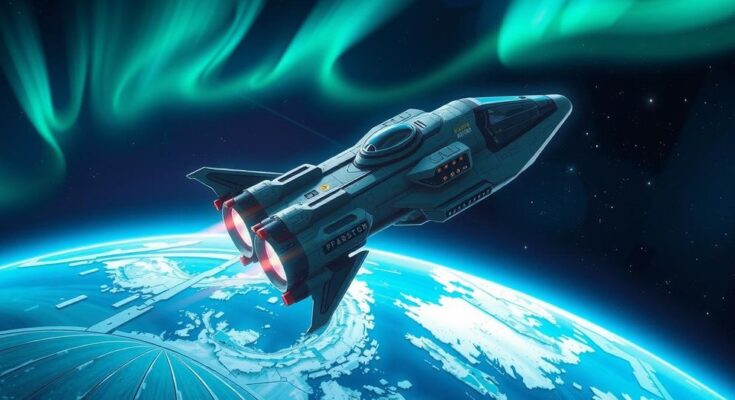A groundbreaking radio experiment is set to take to the stars as Rabea Rogge, a TU Berlin alumna, embarks on the Fram2 mission. Scheduled for launch on 1 April 2025, Rogge will become the first German woman in space. From a SpaceX Dragon spacecraft, she will establish contact with Earth via amateur radio, showcasing this historic event through a live stream from the TU Berlin radio room.
The Fram2 mission, with Rogge serving as vehicle pilot, will lift off from NASA’s Kennedy Space Center on a SpaceX Falcon 9 rocket. Aiming for a polar orbit that traverses both polar regions, this mission will be a significant advancement in space exploration, lasting nearly four days, and focusing on scientific studies and new technology innovations for prolonged space travel.
Rabea Rogge’s radio conversation from space is part of the innovative Fram2Ham experiment, designed to involve students globally in scientific exchanges. Collaborating with Amateur Radio on the International Space Station (ARISS), TU Berlin’s radio operators will attempt contact when Fram2 passes over Berlin, eager to engage with Rogge aboard the spacecraft.
Following a robust schedule, the live interaction will occur on 1 April at 09:28 AM CET, with the livestream beginning at 09:20 AM. The event will be accessible on TU Berlin’s YouTube channel, allowing viewers to witness this monumental moment in space communication.
In case the initial radio attempts fail, a backup opportunity is also planned for 3 April 2025. During these sessions, radio operators will share insights into their experiences and the significance of this exchange. Students’ questions will enliven the conversation, keeping the focus on STEM topics to further science engagement and the excitement of space.
The challenge of establishing radio contact from space involves limited transmission power, yet the Fram2Ham project will also enable worldwide student participation by sending them pictures of the polar regions captured from the spacecraft.
Before embarking on this mission, Rogge’s academic journey in Electrical Engineering at TU Berlin and ETH Zurich led her to work on remarkable projects, including nanosatellites and Arctic robotics. Now, as she balances her doctoral studies, she’s embraced rigorous training, including sea kayaking in Alaska, preparing for her pivotal role.
Acquiring experiences onboard will include innovative research projects such as medical imaging with portable X-ray equipment, genetic adaptation studies to extreme conditions, and cognitive performance assessments in space. Rogge will also explore light phenomena in the polar regions resembling auroras, adding a scientific layer to her journey.
Founded in 1972, the TU Berlin amateur radio club is at the forefront of educational outreach. The club supports students in mastering amateur radio, satellite communications, and radio astronomy, fostering collaborations like the one between TU Berlin and ETH Zurich. Rogge’s connection to the radio club stems from an educational exchange, highlighting the union of knowledge that spans borders and disciplines, echoing the spirit of exploration in the universe.
On 1 April 2025, Rabea Rogge, a TU Berlin alumna, will be the first German woman in space, engaging in a pioneering amateur radio experiment during the Fram2 mission from a SpaceX Dragon spacecraft. With a mission aimed at polar orbital research, she will be in direct contact with Earth while promoting STEM topics amongst students worldwide, streamed live from TU Berlin. Backup plans are in place if initial contact attempts are unsuccessful, reflecting the spirit of resilience in scientific exploration.
Rabea Rogge’s upcoming Fram2 mission represents a significant milestone for both science and German space exploration. As she prepares to live broadcast from the cosmos, the project encourages global participation in scientific conversation, inspiring future generations in STEM. Supported by the TU Berlin amateur radio club and international collaborations, this mission sets the groundwork for innovation and community engagement, showcasing the power of collective ambition and curiosity about the universe.
Original Source: nachrichten.idw-online.de



